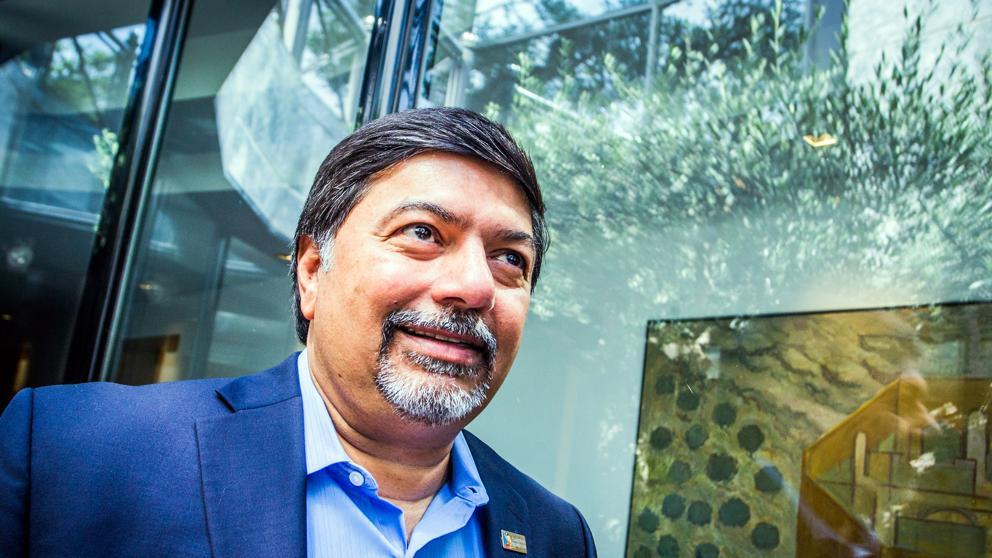Conscious Capitalism: Conversation with Raj Sisodia, Part Four

Raj Sisodia is the Professor of Global Business, Babson College, Co-founder & Co-Chairman, Conscious Capitalism, Inc. Raj has written ten books and over 100 academic articles.
Q: How does short-term investment work with Conscious Capitalism?
A: It doesn’t. Most speculators are shrewd masters. The biases toward quarterly bottom line stock price gains mean that only eight months or less is the average holding time for short-term investing. Yet, investing is a long-term speculation. This presents a great conflict.
The system is myopically geared as an optimized profit-based engine—and it is a bias of industrial-revolution era thinking. MBA schools are a huge part of the problem, not part of the solution. If we unconsciously see the sole purpose of business as purely monetary, then business itself cannot reach its potential in the social sector.
Q: Does that sound more like a philosophy than a worldview?
A: Conscious Capitalism is an active, embodied philosophy that works to activate a fuller range of value and impact than profit alone. This position requires a philosophy that gives professionals. Such a perspective moves business more into a win-win-win mindset rather than it’s MBA-view of business as military.
Q: Can you explain?
A: Sure. Hyper-competition destroys. The deeper problem is that the rules of business are rooted in the military. When we started having corporations of scale in the 19th century and they were trying to understand how to manage the large organizations the only large organizations that existed on the planet were armies.
Therefore they looked to armies. This was the only model on how to organize the hierarchical structure, command, and control. This has been the dominant mode of business for so long. Even the language the same: headquarter, having boots on the ground, capturing market share—everything the mentality comes from the world of war and the fact that this is not really war. War is the ultimate game. Sometimes it can be win-lose-lose. But war is going to avoid the biggest causes of human suffering and loss of life.
Now the grand irony is that even the armed forces realized it didn’t work. If you look at how the armed forces broke into small nodes of authority in the Middle East you can clearly see how this top-down large model doesn’t work in the source of it. Why would you then expect it to work in the world of business?
Wars and corporations vying for profit-at-any-cost have been two of the most damaging and ravishing forces on the planet since the 19th century. Better technology has just increased their efficiency of destruction. What we need is a new model that works to bring out the best in people, the planet, and for companies. This is what Conscious Capitalism does.
Image credit: transferconsultancy.com
Wait! Before you go…
Choose how you want the latest innovation content delivered to you:
- Daily — RSS Feed — Email — Twitter — Facebook — Linkedin Today
- Weekly — Email Newsletter — Free Magazine — Linkedin Group
 Michael Graber is the managing partner of the Southern Growth Studio, an innovation and strategic growth firm based in Memphis, TN and the author of Going Electric. Visit www.southerngrowthstudio.com to learn more.
Michael Graber is the managing partner of the Southern Growth Studio, an innovation and strategic growth firm based in Memphis, TN and the author of Going Electric. Visit www.southerngrowthstudio.com to learn more.
NEVER MISS ANOTHER NEWSLETTER!
LATEST BLOGS
Credit Card Shenanigans
It must be great to be in the credit card business in the United States. Demand is relatively inelastic and regulation is lax, so you can charge whatever you want for an interest rate, increase your fees once or twice a year, and make additional money off cash withdrawals and foreign exchange transactions.
Read MoreBuilding an Experience
As people become ever more immune to traditional advertising and marketing, branding will become more important. Branding is all about building an emotional connection with customers. Making the decision to follow a strategy focused on building a brand is not without peril, however, as it means that you will have to choose to not do certain things, like pursue a low price strategy.
Read More- « Previous
- 1
- …
- 4,132
- 4,133
- 4,134




